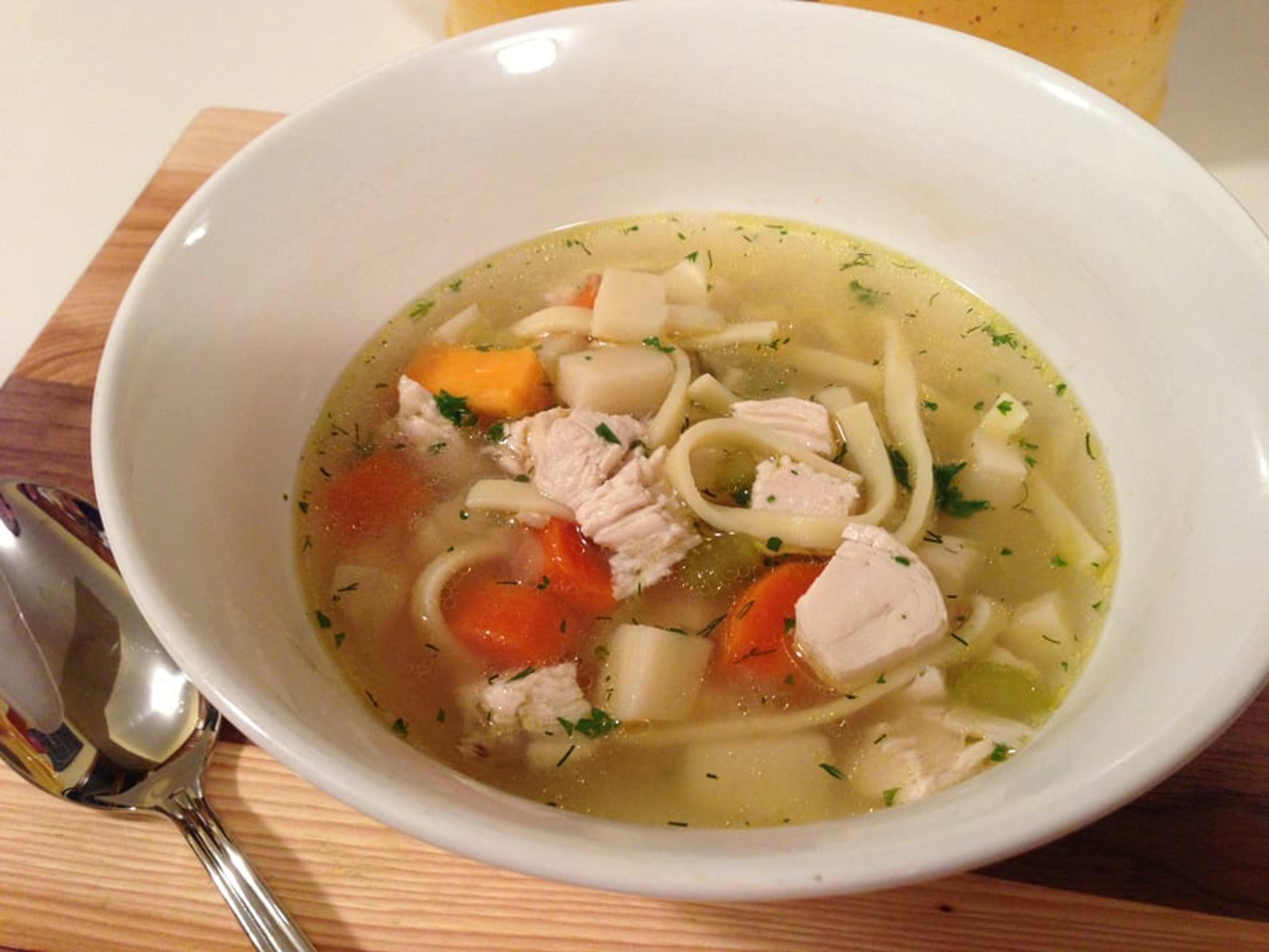Chicken Soup: It’s Good for Your Body as Well as Your Soul
| 3 min read

Twenty years ago, Stephen Rennard, M.D., a lung specialist and researcher at the University of Nebraska, was curious to know if the folk remedy of eating chicken soup to fight off a cold was actually effective. “Everyone has heard this from their mother in many cultures.” Dr. Rennard said at the time. “No one seems to have a monopoly on the insight of the value of chicken soup.” So being the inquisitive scientist, he brought his Grandma’s soup to the lab and, in a now famous study, tested it. The findings were fascinating: Chicken soup can help fight off a cold.

Is it the heat of the broth? The nutrients found in the vegetables? Something about the chicken? Or maybe it’s the fond memories related to the soup that provide comfort? Dr. Rennard concluded that it is probably a little of all of those things that explain why a bowl of chicken soup has healing properties. Dr. Rennard’s research findings, which have held up to this day, suggest that the individual components of the soup–the broth, the vegetables, and the chicken—combine to have a mild anti-inflammatory effect, bringing cold sufferers relief.




Mothers and Grandmothers around the globe have been making their own versions of chicken soup for centuries (there are variations from Greece, Mexico, China, Poland, and Italy). In Jewish cultures it even has the nickname Jewish penicillin!
Dr. Rennard has shared his Grandma’s Recipe, but we also wanted to offer up our own version, which makes enough to freeze some for later in the cold season. Of course, you could always buy canned soup for the same benefits, but where’s the fun in that?
Grandmama’s Chicken Soup
Ingredients
- 1 large onion, chopped
- 2 celery stalks, chopped
- 1 large parsnip, chopped
- 1 large carrot, sliced thinly
- 3 garlic cloves, crushed
- 2 pounds bone-in chicken breasts, skin pulled off and discarded
- 2 bay leaves
- 2 teaspoons thyme
- ¼ cup fresh parsley, chopped finely
- 10 cups low-sodium chicken broth
- 4 cups water
- 8 ounces wide egg noodles
- ¼ cup fresh dill, chopped finely
- Freshly ground black pepper
Directions
In a large stock pot, add onions, celery, parsnip, carrot, garlic, chicken, bay leaves, and thyme. Add enough broth to just cover the chicken. Cook on medium-high heat for 30 minutes. Carefully lift chicken out and set aside until cool to the touch. To the pot, add the rest of the broth and water and bring to a boil. Add noodles and parsley and cook according to the package directions on the noodles, stirring occasionally to keep from sticking. Meanwhile, pull the chicken meat from the bone and shred. Once noodles are done, stir in chicken and dill. Add black pepper to taste.
Note: Fresh chicken meat can be purchased locally at butcher shops or from a farmer like Otto’s Chicken, located in Middleville. Visit their website to see the list of farmer’s markets where their chicken is sold throughout the region.
Nutritional Information (Makes 15 servings)
Per serving: 106 calories;2.5g total fat; 315mg sodium; 5g carbohydrates; 1g fiber; 11g protein
Per serving: 106 calories;2.5g total fat; 315mg sodium; 5g carbohydrates; 1g fiber; 11g protein





